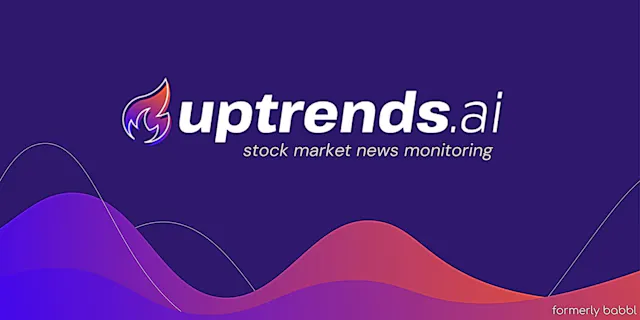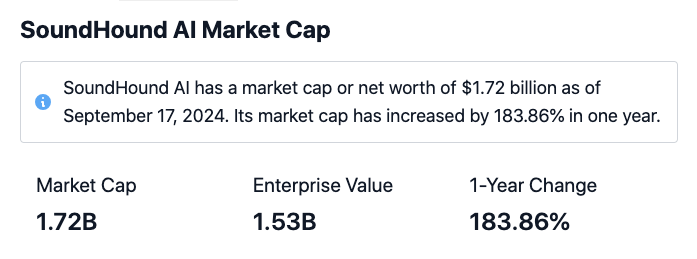20 Recommended Pieces Of Advice For Deciding On AI Stock Analysing Websites
20 Recommended Pieces Of Advice For Deciding On AI Stock Analysing Websites
Blog Article
Top 10 Ways To Evaluate The Privacy And Security Of Ai Stock Trading Platforms
Privacy and security are the top priorities when making use of AI software for predicting and analyzing stocks since they are often handling sensitive financial information as well as personal data. An attack on data or misuse can cause significant financial loss as well as reputational damage. Here are 10 suggestions to evaluate the privacy and security of these websites.
1. Evaluation of Data encryption
Secure transmission of data: Make sure that the service you are using has secure protocols that protect your data while it's transferred between their servers and the device (e.g. TLS/SSL).
Verify the encryption at rest. Examine if sensitive information is encrypted on the server of the platform using high encryption standards (e.g. AES-128).
Verify if the platform supports encryption end-to-end of sensitive information or communications.
2. Review the authenticity methods
Two-factor verification (copyright) Make sure that the platform is compatible with copyright, which provides an extra layer of security.
Biometric authentication: Check if the platform allows biometric login methods (e.g. fingerprint, facial recognition) for mobile applications.
Password policies - Verify that the platform enforces strong password policies (e.g. length, requirements for length and complexity requirements).
3. Check for Compliance
Financial regulations: Ensure conformity with the relevant financial regulations (e.g. SEC FINRA MiFID II).
Data protection law: If you trade with a region that is subject to these laws, make sure you are in compliance.
Audit certifications: Verify whether your platform was examined by a third-party auditor or certifications.
4. Review the Data Access Controls
Role-based Access: Make sure your platform uses control based on role (RBAC) to limit access to data to authorized users.
Permission levels: Examine to see if the different members or users of the team may have different permissions.
Activity monitoring. Check if your platform tracks and monitors the user's activities.
5. Assess Vulnerability and Management
Regular updates: Ensure that the platform updates its software regularly to patch security holes.
Check that your platform is regularly screened to penetration testing to detect security flaws and fix the vulnerabilities.
Bug bounty programs: Check whether your platform is part of programs that reward external security experts for reporting weaknesses.
6. Evaluate Data Privacy Policies
Transparency: Read the privacy policies on the website to find out what data you provide will be used, collected and shared.
Data minimization: Ensure that your platform only collects data essential to its function.
Third-party Sharing: Determine if the platform is sharing its data with third-parties and, if yes in what manner.
7. Secure API usage should be inspected
API security - Check that the API of your platform employs secure authentication methods such as OAuth or API keys and encrypts any data exchanges.
Rate limiting. Verify the API's rate limiter to prevent the abuse.
Check for access logs. The platform must log API usage and access to audit and monitor.
8. Assess the Recovery of Incidents and Response
Incident response plan - Ensure that the platform is outfitted with a procedure to deal with data breaches or other security incidents.
Verify the platform's notification policy. Does it notify users immediately if there is an incident?
Backups of data - Make sure your platform is equipped with a plan for disaster recovery, and that it regularly backs up data up.
9. Evaluate Physical Security Measures
Data center security: Confirm that the servers of the platform are located in secure datacenters that are secured and have physical security measures (e.g. monitoring, access control).
Redundancy: Verify that the platform is protected by redundant systems in order to guarantee the availability of data in the event an hardware failure.
Geographic distribution: To increase resilience, make sure the information is spread across several locations.
10. Test privacy controls on users
Data deletion: Ensure that your platform allows deletion of all your personal data when you decide to end your use of it.
Privacy settings: Make sure the platform has privacy settings to allow you to control which data is visible or shared.
Anonymization: Find out whether the platform is able to anonymize the data that is used to analyze or machine learning.
Bonus Tips:
Reviews and feedback from users: Use reviews and feedback to assess the reputation of a platform for security and privacy.
Trial time: You can make use of a demo or a no-cost trial to test out the privacy and security controls.
Customer support: Make sure the platform provides robust assistance to customers who have security concerns or issues.
By following these tips that you follow, you will be able to assess the security and privacy of AI stock predicting/analyzing trading platforms, ensuring your financial and personal information is protected. Secure platforms protect your assets and builds confidence in its services. View the recommended ai trade examples for more examples including investment ai, best ai copyright trading bot, ai stock trading bot free, ai trade, investment ai, ai trading bots, best ai trading platform, ai coin price prediction, ai trading app, ai trading platform and more.
Top 10 Tips To Evaluate The Reputation And Reviews For Ai Stock Predicting/Analyzing Trading Platforms
For AI-driven platforms for stock predictions and trading It is essential to examine their reputation as well as reviews. This will help ensure that they are dependable as well as trustworthy and efficient. Here are 10 top tips to assess their reputations and reviews.
1. Check Independent Review Platforms
Find reviews on trusted platforms, such as G2, copyright and Capterra.
Why: Independent platforms offer unbiased feedback by real users.
2. Study user testimonials and cases studies
Tips: You may find reviews from users as well as case studies on the platform site or on third-party websites.
Why: These insights provide real-time feedback about the performance of your product and how satisfied users are.
3. Review Expert Opinions and Industry Recognition
Tip: Check if experts in the field or financial analysts, as well as reputable magazines have evaluated or recommended the platform.
Expert endorsements lend credence to the claims made by the platform.
4. Examine Social Media Sentiment
Tip Monitor social media sites (e.g. Twitter. LinkedIn. Reddit.) to learn what others are saying and what they think about it.
The reason: Social media provides an unfiltered view of trends and opinions on the platform.
5. Verify Compliance With Regulatory Rules
Make sure your platform conforms to financial regulations such as SEC and FINRA or regulations on privacy of data, such as GDPR.
Why: Compliance ensures that the platform functions legally and with integrity.
6. Transparency of Performance Metrics
Tip Check whether the platform has transparent performance metrics.
Transparency encourages trust and allows users of the platform to assess the effectiveness of the platform.
7. Take into account the quality of customer service.
Tip: Read reviews about the support system's efficiency and efficiency.
Why reliable support is essential for resolving problems and providing a positive user experience.
8. Red Flags are a good indication of a poor review
Tip: Look for recurring complaints, such as low performance, hidden charges, or lack of updates.
The reason: A consistent lack of feedback could signal a platform issue.
9. Examine User Engagement and Community Engagement
Tips: Ensure that the platform is in use and engages regularly with users (e.g. forums, Discord groups).
The reason is that a strong user community is a symbol of support and satisfaction.
10. Check out the history of the company.
Tips: Research the company's history, leadership team, and past performances in the financial technology space.
The reason: Having a track record of records boosts confidence and trust on the platform.
Compare multiple platforms
Compare the reputations and ratings of different platforms to determine which one is the most appropriate for your requirements.
These guidelines will allow you evaluate thoroughly the reviews and reputation of AI software for stock prediction as well as trading platforms. This will allow you to pick a reliable and efficient solution. Have a look at the most popular incite for more tips including best ai stocks to buy now, best ai trading platform, incite, best copyright prediction site, artificial intelligence stocks, ai trader, ai bots for trading, stock analysis app, best ai copyright to buy, ai stock trading and more.